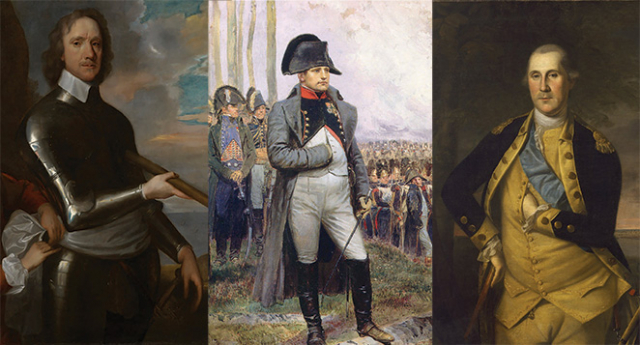After the revolution: did Cromwell, Washington and Bonaparte betray revolutionary principles?
Historian article

Did Cromwell, Washington and Bonaparte betray revolutionary principles?
This article examines the aftermath of three epoch-making periods of change – the English, American, and French Revolutions. A comparison of the trio of military commanders who gained power as a direct consequence of these upheavals reveals how the very political radicalism which brought them to power also threatened to unbalance their regimes. Each was faced with a paradox: to secure revolutionary gains – and maintain their own positions – meant the sacrifice of revolutionary principles; but to defend the revolution was also, in part, to abandon its full implication.
When the executioner struck his single blow, it took less than a second for the head of Charles I to fall to the scaffold, but the implications of the act would unfold over centuries. In the same way, the so-called ‘shot heard around the world’ in 1755 is, in a sense, still ringing in America today, or the blade of the guillotine continues to glint in historical memory long after the France it dominated no longer exists. The trio of tumultuous, era-redefining revolutions that took place in England (1649–60), America (1776–88) and France (1789–99), collectively gave rise to ideas so radical they have resonated ever since...
This resource is FREE for Historian HA Members.
Non HA Members can get instant access for £2.49

